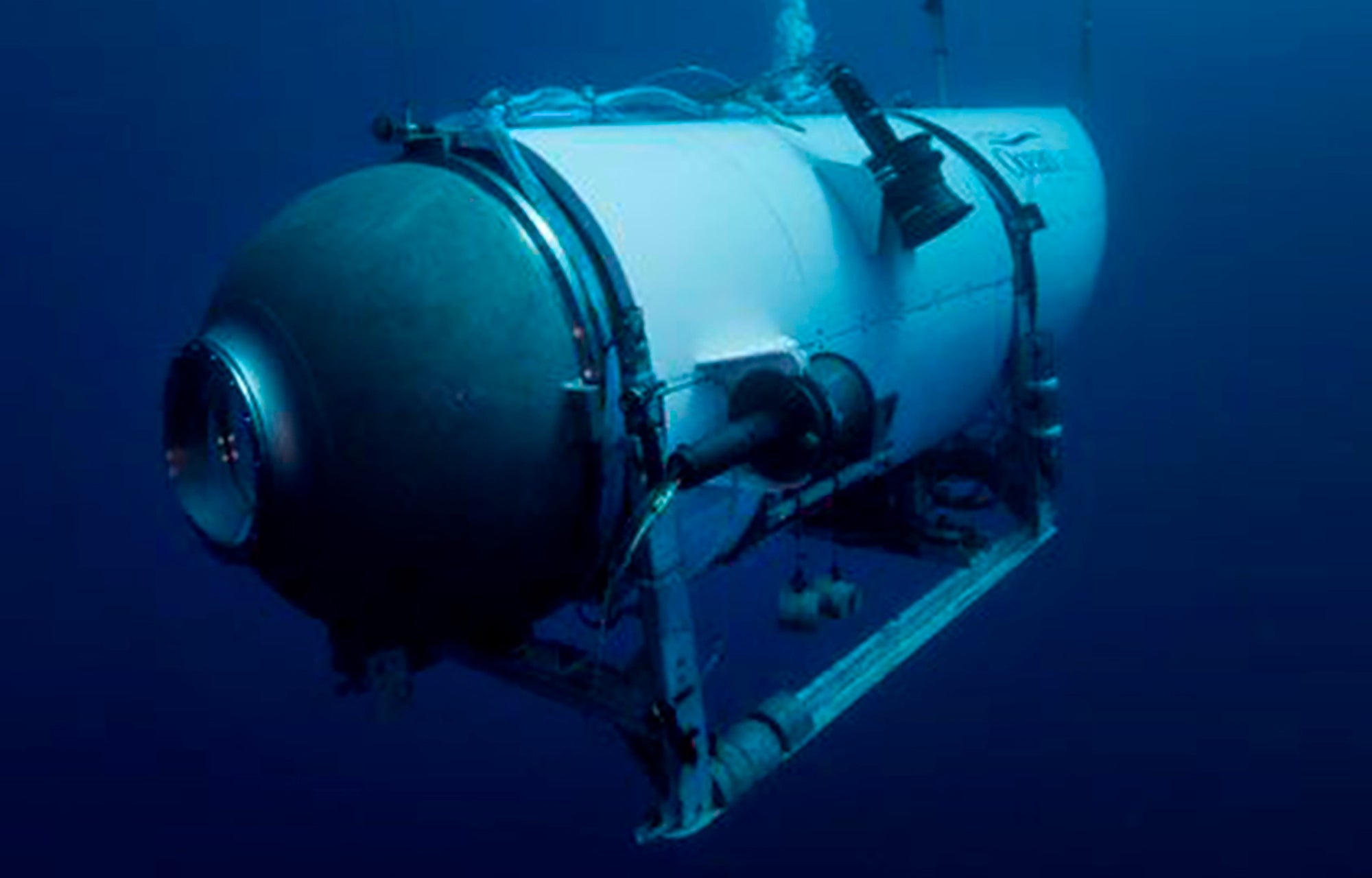Oceangate’s co-founder failed to get people to the Titanic but says he can safely put humans on Venus
Exclusive: Söhnlein believes that human life on Venus is more viable than Mars
Your support helps us to tell the story
From reproductive rights to climate change to Big Tech, The Independent is on the ground when the story is developing. Whether it's investigating the financials of Elon Musk's pro-Trump PAC or producing our latest documentary, 'The A Word', which shines a light on the American women fighting for reproductive rights, we know how important it is to parse out the facts from the messaging.
At such a critical moment in US history, we need reporters on the ground. Your donation allows us to keep sending journalists to speak to both sides of the story.
The Independent is trusted by Americans across the entire political spectrum. And unlike many other quality news outlets, we choose not to lock Americans out of our reporting and analysis with paywalls. We believe quality journalism should be available to everyone, paid for by those who can afford it.
Your support makes all the difference.The man who co-founded the company behind the Titan submersible disaster believes that he can “safely” send humans to Venus.
Guillermo Söhnlein, 58, made the revelation in a blog post in April where he argued that humanity can attempt to live and work on Venus, despite its inhospitable conditions because of its proximity to the Earth.
He believes that the challenges presented by Venus like carbon dioxide and clouds made of sulfuric acid “can be overcome with breathing apparatus and acid-resistant materials.”
The Argentinian-born OceanGate co-founder also believes that its inhospitable surface, which is around 864 degrees Fahrenheit (462 degrees Celsius), should not be an issue if humans simply build a home 50km in its air where conditions are reportedly similar to those on the Earth.
Taking to his blog earlier this year, the Argentinian-born Oceangate co-founder wrote: “We could embark on our Venusian journey TODAY... and do it safely and cost-effectively.
“The reality is that Venus is much closer to Earth and has a much more similar orbit, which makes it much more accessible than Mars (lower cost, more frequent flight windows, shorter transit times, higher safety, etc.).
“Also, we don’t have to worry about conducting successful landings on the planet’s surface, which is one of the biggest challenges awaiting us on Mars.
“If anything, one could argue that sending humans to Venus BEFORE sending them to Mars might be a better way to safely develop the capabilities to create a Martian community.”

Söhnlein is now hoping to encourage enough people to join a community including scientists, explorers and private investors to make his dream of reaching Venus a reality, despite the fact that humans have never physically travelled further than the moon.
He co-founded OceanGate back in 2009 with Stockton Rush, 61, who died last June when the Titan suffered a “catastrophic implosion” around an hour and 45 minutes into its dive to the Titanic wreck site, which occured one year ago today.
Söhnlein was still open about his most ambitious exploration plans last June after the Titan disaster.
He founded the Humans2Venus Foundation after leaving OceanGate in January 2020.
Undeterred by the fact that humans have not yet reached Mars, he believes that the hottest planet in our solar system is ripe for colonisation.
“I think it is less aspirational than putting a million people on the Martian surface by 2050,” he told Business Insider at the time.
“It would raise eyebrows outside the space industry. And it even raises eyebrows inside the space industry.
“Forget OceanGate. Forget Titan. Forget Stockton. Humanity could be on the verge of a big breakthrough and not take advantage of it because we, as a species, are gonna get shut down and pushed back into the status quo.

“[Sending humans to Venus] ... it is aspirational, but I think it’s also very doable by 2050.”
As reported by Space.com, experts currently believe that human life on Venus is almost impossible.
According to the co-founder’s LinkedIn, his passion for exploring the unexplored has not waned in the wake of the OceanGate disaster.
In January of this year, he founded Space Bridge Partners, a company that connects commercial investors with an interest in space exploration to missions.
Söhnlein’s LinkedIn also reveals that he was no longer working for OceanGate at the time of the Titan disaster last June, having ended his position as COO in January 2013.
Join our commenting forum
Join thought-provoking conversations, follow other Independent readers and see their replies
Comments